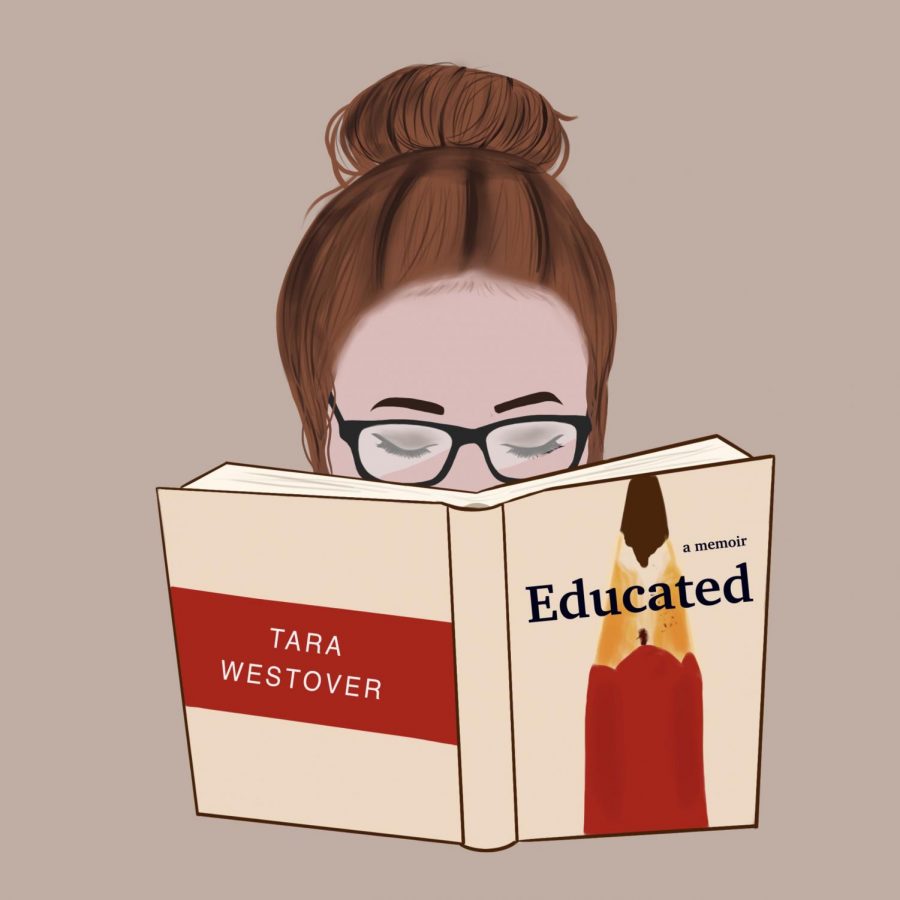One Book educates students on access to learning
September 9, 2020
“Educated: A memoir” by Tara Westover is the University of North Alabama’s “One Book” for the 2020-2021 school year. The “One Book” program began in 2019, with the selection of Bryan Stevenson’s “Just Mercy.” Each year’s chosen book is integrated into the curriculum of First Year Experience, a course that freshmen are required to take. “Educated” tells the story of Tara Westover, a woman who was raised in Idaho by a Fundamentalist Christian family that did not believe in sending their children to school. She received minimal homeschooling from her family, but mostly learned about working with her hands until she was an adult. She also suffered physical and emotional abuse from her brother that has impacted the rest of her life. Today, Westover has a PhD from Cambridge University and is the author of a book that will now shape the future of UNA. In the fall of the previous school year, the One Book Selection Group began discussing candidates for this year’s book. Jennifer Pate, assistant professor and librarian, served as chair of this group for the second year in a row. The group, featuring representatives from across UNA’s faculty, narrows down their individual choices to three selections. The chosen three are then put to a campus-wide vote, via UNA’s digest. Faculty, Administration and Students are left to choose. The nominees for this school year were “Educated,” suggested by the education department’s Dr. Jessica Mitchell, “Haben”, the autobiography of the first deaf- blind graduate of Harvard, suggested by Pate, and “The Curious Incident of the Dog in the Nighttime” by Mark Haddon, suggested by the Associate Dean of the College of Arts and Sciences, Jefferey Bibbee. Each selection deals with the subject overcoming the pre-existing obstacles they face. Ultimately, “Educated” was chosen. Pate played a large part in last year’s One Book program, featuring BryanStevenson’s “Just Mercy,” which deals with themes of systemic racism, wrongful incarceration and the death penalty. She discusses the change in themes from last year’s selection, “It’s a radical departure from what we had last year, but it tells a very significant perspective on access to education.” Pate expresses hope that this book will
resonate with freshmen in the growing stages between high school and college, “We do have a lot of folks who come from very strict, religious backgrounds who come to university and all of the sudden life is a lot different when you’re not living with your parents and their moral code. Some people tend to cling more to their religious traditions and some people tend to go completely opposite.” S h e explains her visual of a spectrum of people who leave home with the objective of being just like their parents to people who hate the way they grew up and want to do the complete opposite of what they were taught and how she believes that “Educated” will benefit students on the more rebellious end, “[Education] helps people find out who they really are morally and emotionally, and it’s all about growth. The whole book is about her growth in education, her growth in her own knowledge of how the world works. I think that’s what everyone who comes to college is going through, you’re going through a big growth.” Many changes have been made in this year’s First Year Experience program to adapt to the ongoing pandemic. Pate’s own FYE class once featured assignments in which students would receive points for sending her photos of themselves “out and about” on campus, which is now nearly impossible. Last fall saw students gather in the library for weekly discussions about themes in “Just Mercy” and events related to the book and the movie adaptation, which was released at the same time. A group of students even got to visit Montgomery, Ala. and tour the Equal Justice Initiative, making for an extremely interactive One Book experience. “Other than it being deployed throughout the First Year Experience classes, I’m not sure how much campus engagement we’re going to be able to do around the book, which is disappointing. I think there’s a lot of opportunities for discussion of the story itself,” Pate commented. Unfortunately, the connection students have to the book this semester may be one that mimics Westover’s feelings of isolation. However, it is hoped that it will serve as a comfort
to students trying to find their way as they enter a new stage in their education and lives. Pate concluded, “Your background can influence your future, but it doesn’t necessarily have to determine your future. I’m hoping that aspect will resonate with people.”


